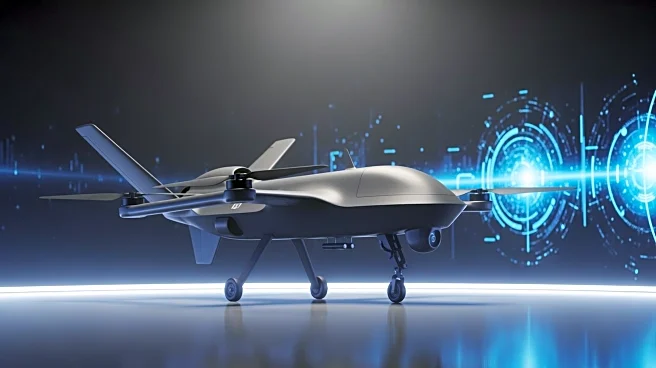What's Happening?
V2X has announced progress on its strategic capture agenda, securing two out of five targeted contracts valued over $1 billion each. The company won a $4.3 billion Air Force contract for T-6 trainer jet support, which is currently under legal protest
by AAR Corp. in the U.S. Court of Federal Claims. Additionally, V2X secured a $1 billion contract to modernize Iraq's F-16 jets. CEO Jeremy Wensinger highlighted the company's growth and ability to win significant contracts, emphasizing the importance of foreign military sales and rapid prototyping in their strategy.
Why It's Important?
V2X's success in securing large military contracts underscores its growing influence in defense contracting, potentially impacting the competitive landscape. The legal challenges faced by V2X highlight the complexities of government contracting and the role of judicial processes in resolving disputes. The modernization of military equipment, such as F-16 jets, is crucial for maintaining strategic capabilities and supporting allied nations. V2X's focus on rapid prototyping and new technologies may drive innovation in defense systems, influencing future military strategies.
What's Next?
The outcome of the legal protest against V2X's Air Force contract will be pivotal in determining the company's ability to proceed with its plans. Continued success in foreign military sales could enhance V2X's reputation and open new opportunities for international collaboration. The company's emphasis on rapid prototyping and new technologies may lead to further advancements in military capabilities, potentially attracting additional contracts and partnerships.
Beyond the Headlines
The legal challenges faced by V2X highlight the importance of transparency and fairness in government contracting processes. The company's focus on modernization and innovation reflects broader trends in defense strategy, emphasizing the need for adaptable and technologically advanced military systems. The integration of new technologies into military operations may raise ethical and strategic questions about the future of warfare.
















